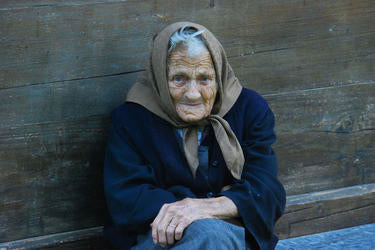You have the bones of a 110-year-old woman!
October 05, 2015 4 min read

You have the bones of a 110-year-old woman!
What doctor would tell a 30-year-old woman—who has never fractured a bone—that she has the bones of a woman who is 110 years old?
This dire proclamation was given to one of my patients, based on a single bone density test. This, and similar dreadful assertions have been reported to me many times, although usually the doctor dials the age back a bit to a mere 90 or 100 years old. This was the first time I had heard 110! I suppose the doctor wanted to emphasize the seriousness of the condition. The problem that I have with these kinds of proclamations is that they not only frighten people, they are most often incorrect especially if the person in question is relatively has never sustained a bone fracture.
What happened in this case? The doctor looked at a single bone density test, and, not being a bone specialist, or schooled in bone density analysis incorrectly assessed the results. Now, here’s the important point: the bone density test did indicate that this patient’s bone density was very low. Low enough that I would initiate an immediate investigation, with the first step being a complete lab workup, including lab tests to determine whether or not she’sactively losing bone. Unfortunately, there are too many doctors treating patients for osteoporosis who have little understanding of the condition. Any doctor, fully trained in assessing bone health—or not—can prescribe medications. The doctor who is untrained might order a bone density test, then, because of their lack of understanding, over-react to the results and often will prescribe medications, rather than take the time to evaluate whether or not active bone loss is occurring.
Don’t get me wrong: I don’t think the doctors are being malicious. I think they truly believe they are doing the right thing by their patients and serious osteoporosis can result in debilitating fractures. The problem is really one of education: we need knowledgeable bone specialists for the generalists to refer their patients to. The complexity of individual bone health requires assessing it on many levels, not just bone density. Medical history, nutritional history, current health conditions, daily eating and exercise habits and age, are some of the many considerations that contribute to a patient’s overall bone health picture. We need more bone experts who understand the complexities and know how to assess each patient’s individual circumstance.
As I point out in my book, there are literally hundreds of medical conditions and risk factors that can result in active bone loss, including thyroid or parathyroid conditions, and, as in this patient’s case, simply having small bones was a factor! Age plays a significant role, as well as hormone imbalances that can occur in men and women. Women are particularly impacted before and following menopause, and that can result in as much as 20% loss of their bone density. The age of my patient is significant precisely because she’s not peri-menopausal, which indicates other potential health issues, past or present might have contributed to her osteoporosis diagnosis.
Whatever the case may be, if there are other underlying health issues, these must be uncovered and treated first, followed up with a comprehensive diet, supplement and exercise regimen to improve gastrointestinal health, hormone balance, and bone and muscle strength. Sometimes these are enough to address the cause, sometimes more serious treatments are called for, but all of these should be explored and addressed beforeprescribing bone medications.
Going back to my 30-year-old patient. Suppose we compare her bones to those of a 110 year-old and find her bone density is the same as the older woman. Doesn’t that mean that she doeshave the bones of a 110 year-old? NO! What’s the difference? The difference is that a woman who is 110 years old will not have the same flexibility (bone quality) in her bones that a healthy 30 year-old, who has never broken a bone, will have. This is an extremely important point, and it is why I say that it was inappropriate and misguided for the doctor to compare my patient that way. She became unnecessarily fearful that she would break a bone sneezing or coughing, something that is not likely to happen to a woman her age who is in generally good health.
So what is the prognosis for this 30 year-old patient? Today her prognosis is quite good. Her first lab tests revealed that she was actively losing bone. She had high bone turnover markers and the lab tests showed deficiencies in vitamins D, B-12, calcium and magnesium and a very low protein level. For the past seven years she had maintained a restrictive diet that was deficient in many nutrients. We worked on a robust nutritional and supplement regimen. She has also started to work out with a trainer to strengthen her muscles and bones. In two short months the lab tests showed significant improvement to within normal range on all scores that were previously low. Given her age and low bone density, it will also be crucial to continue to monitor her bone markers and to make sure her hormones remain balanced through menopause, to avoid additional bone loss.
Subscribe
Sign up to get the latest on sales, new releases and more …

